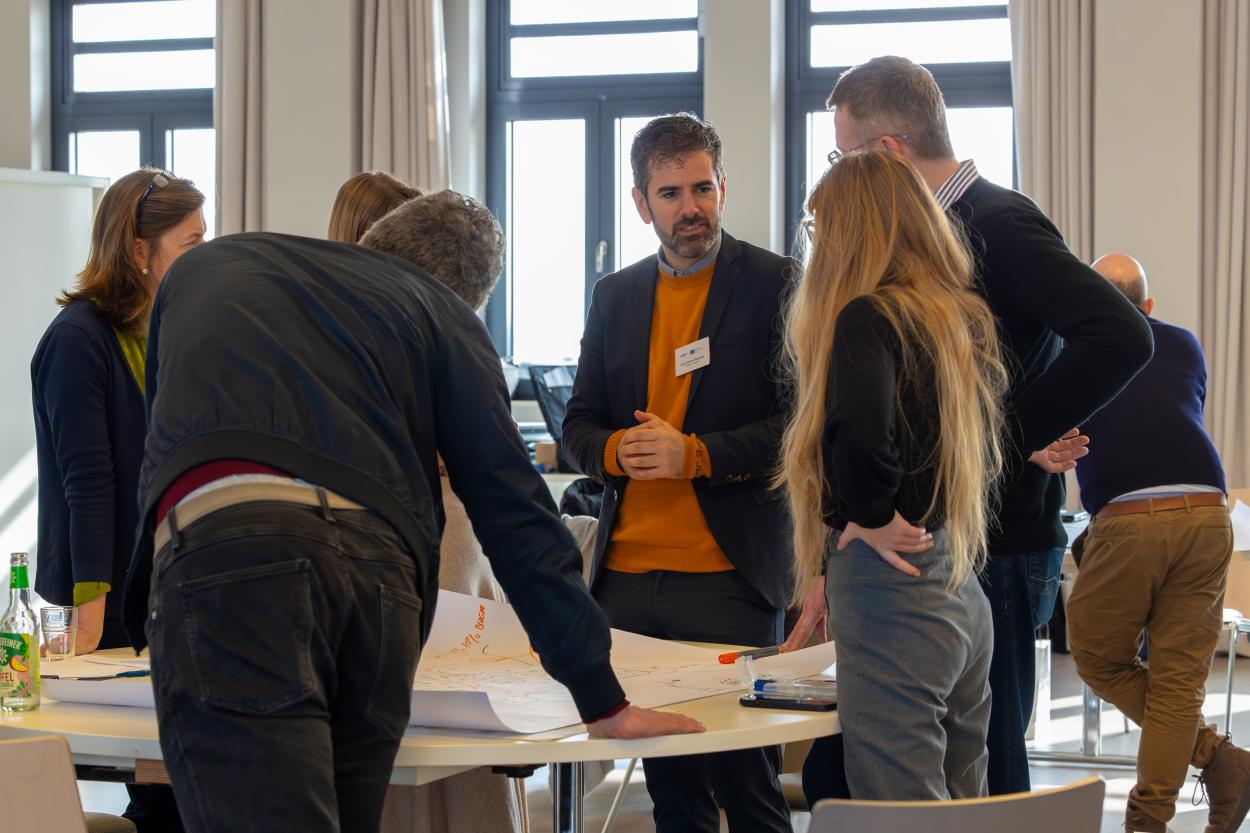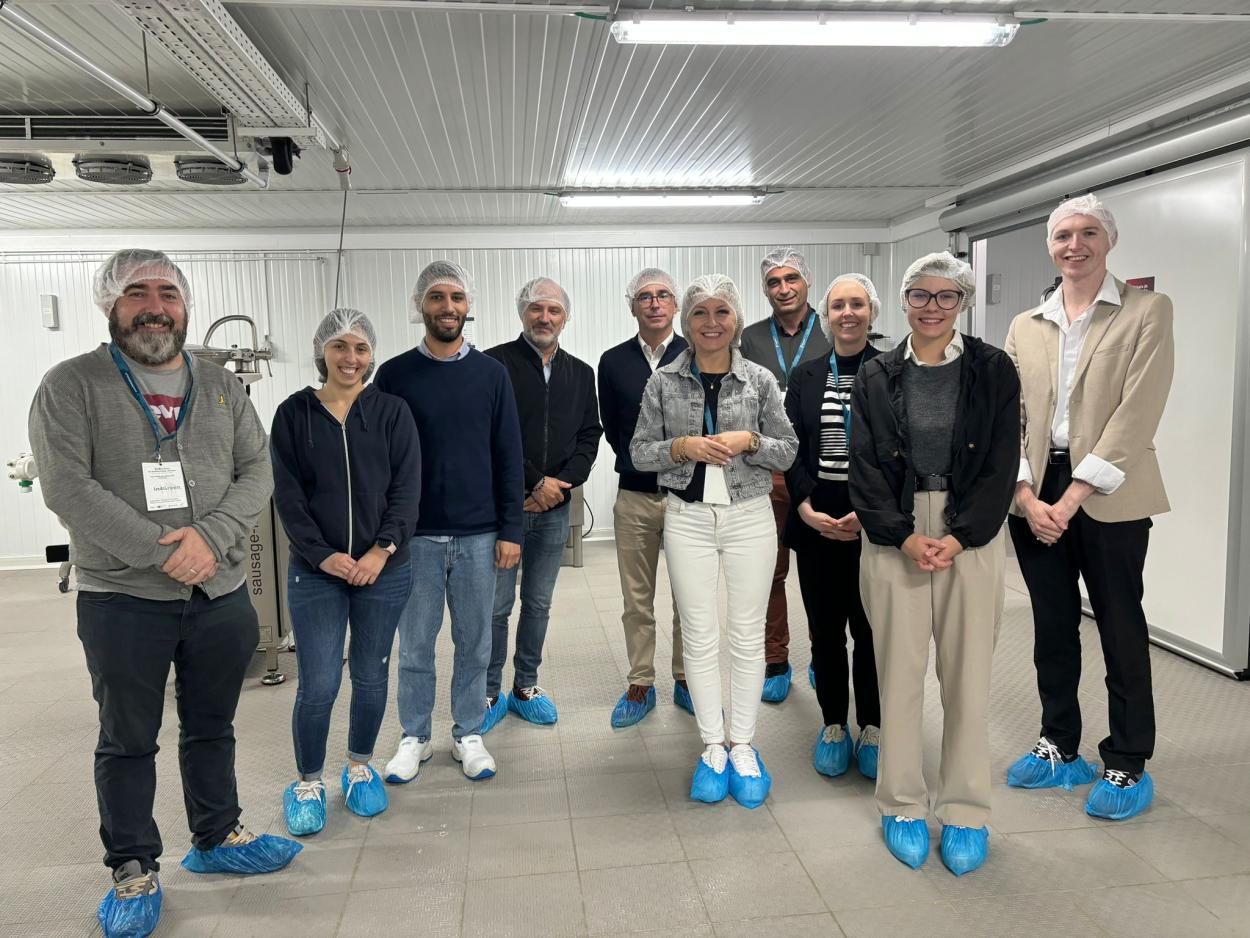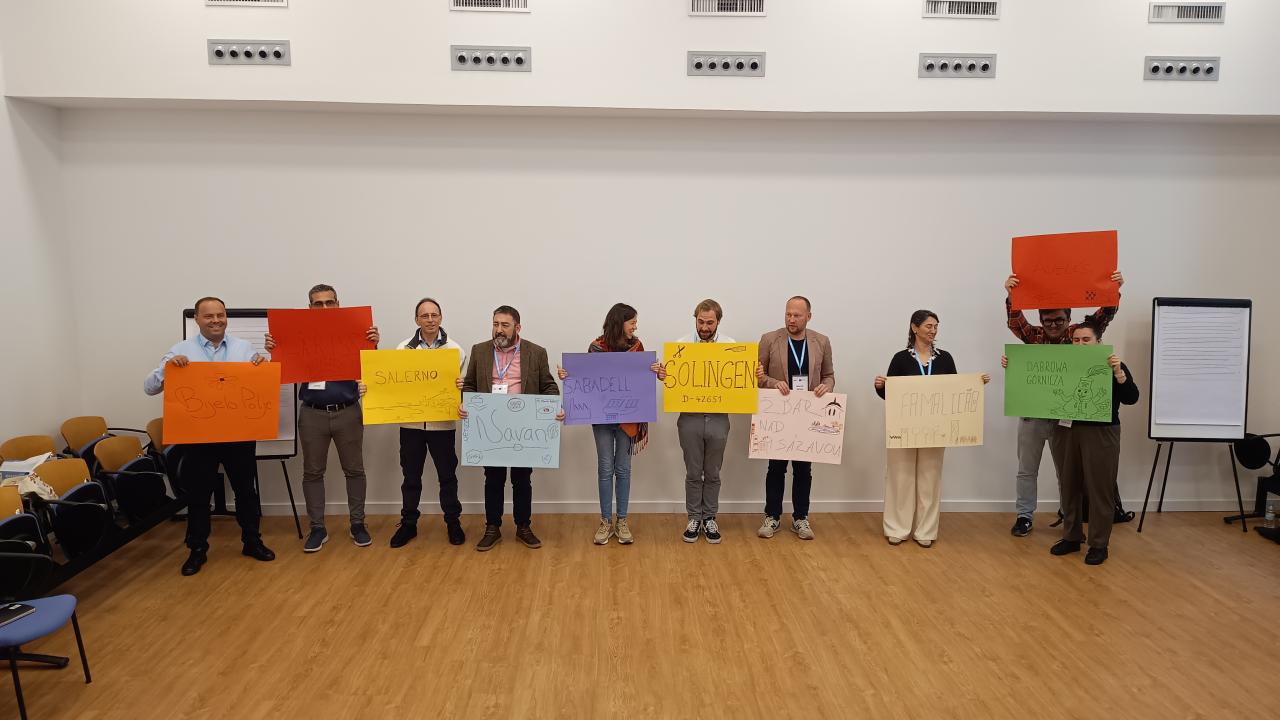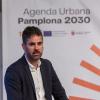The In4Green network brings together cities like Solingen (Germany), Avilés (Spain), Vila Nova de Famalicão (Portugal), Salerno (Italy), Larissa (Greece), Bijelo Polje (Montenegro), Navan (Ireland), Dąbrowa Górnicza (Poland), Žďár nad Sázavou (Czech Republic), and Sabadell (Spain). Each has a rich industrial legacy and has committed to reimagining their economies by integrating green technologies, circular economy principles, and robust stakeholder collaborations. Funded by the European Regional Development Fund (ERDF) through the URBACT IV programme, the project’s ambition is to create actionable Integrated Action Plans (IAPs) that inspire cities across Europe.
THE JOURNEY SO FAR
Collaborative Learning and Transnational Meetings
Over the past 18 months, In4Green has organised three major transnational meetings, fostering collaboration and mutual learning. These meetings, held in Avilés, Solingen, and Vila Nova de Famalicão, have been pivotal. Activities ranged from thematic workshops on circular economy and energy transition to study visits showcasing innovative projects like Solingen’s Waste-to-Energy plant and Famalicão’s CITEVE technology centre. Each session allowed participants to exchange best practices and insights tailored to the green transition.

Peer Learning and Online Engagement
To maintain momentum between physical meetings, eight online peer learning sessions have been conducted. These covered topics such as sustainable SMEs, green investment attraction, and innovation ecosystems, sharing 19 best practices among partners. Additionally, gender equality workshops addressed the role of equity in urban policies, ensuring inclusivity in the transition process.
Localised Action and Testing
At the local level, cities have worked with URBACT Local Groups (ULGs) to involve diverse stakeholders—from municipal employees to private sector innovators. Five testing activities have been initiated, with examples including Sabadell’s case study for greening an industrial zone with ideas from students and Žďár nad Sázavou’s temporary Fablab for retaining talent. The bespoke support meetings with the Lead Expert, Jose Costero, have further refined these initiatives, ensuring alignment with the broader goals of In4Green.
Challenges on the Road to Transition
While the progress has been commendable, the journey has not been without obstacles:
1. Economic viability: Transitioning to green technologies often requires significant investment. For example, SME’s plans for shifting towards renewable energy systems in Solingen face high costs and limited access to grants.
2. Stakeholder engagement: Ensuring active participation from diverse groups has been challenging. Motivating stakeholders to dedicate time and resources requires clear communication of benefits and shared goals.
3. Balancing local and network priorities: With cities at different stages of development, aligning individual actions with network-wide objectives remains complex.
4. Adapting to global pressures: External factors like the war in Ukraine have impacted energy prices, adding urgency and complexity to transition plans.
FIRST LESSONS LEARNED
Collaboration is key
The network’s transnational approach has underscored the value of collective problem-solving. Cities have discovered that solutions tailored to one context can often inspire adaptations elsewhere. For instance, Solingen’s circular economy projects have inspired similar initiatives in other cities.
Integration matters
The URBACT methodology emphasises integrated planning, blending social, economic, and environmental dimensions. This has proven essential, ensuring that actions do not address one challenge while inadvertently creating another.
Innovation drives progress
Technological and policy innovations have been at the heart of In4Green. Whether it’s digitisation in industrial parks or new materials in textiles, forward-thinking solutions have driven tangible change.
Stakeholders are indispensable
Active participation from local businesses, citizens, NGOs, and academia has enriched the planning process, bringing diverse perspectives and fostering community ownership.

CONCLUSION
The first 18 months of In4Green demonstrate that a green industrial transition is not only possible but also essential for the resilience of Europe’s cities. Through collaboration, innovation, and determination, the network has set a strong foundation for achieving its goals. While challenges remain, the commitment of these ten cities to share, learn, and innovate together offers a roadmap for others to follow. As In4Green progresses, it serves as a testament to the power of unified action in shaping a sustainable urban future.
In4Green aims to foster green transition in small and medium-sized European industrial cities. It is a URBACT project, running from 2023 to 2025, co-financed by the European Union through the European Regional Development Fund (ERDF). Regional Development Fund (ERDF)


